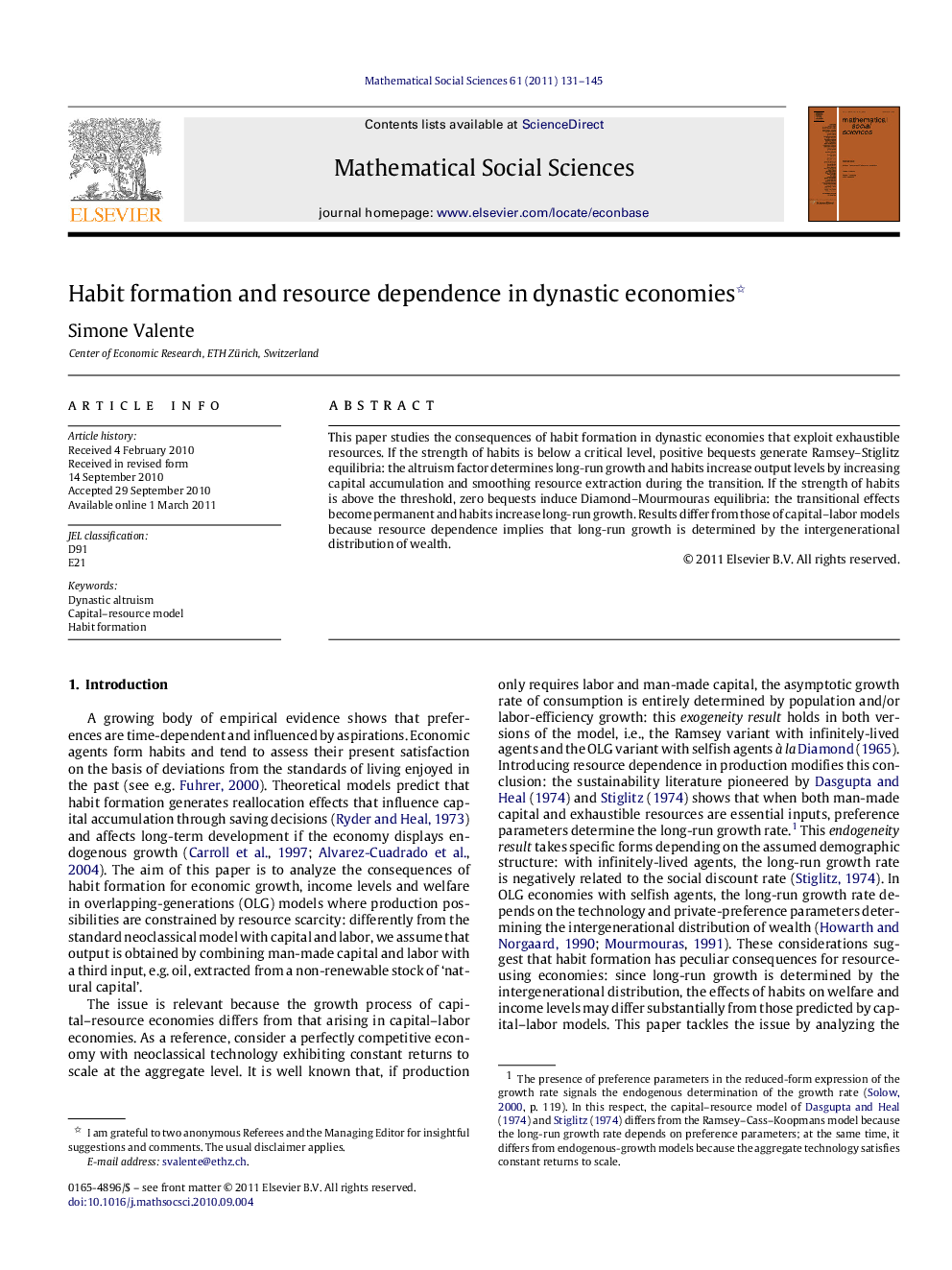| Article ID | Journal | Published Year | Pages | File Type |
|---|---|---|---|---|
| 972071 | Mathematical Social Sciences | 2011 | 15 Pages |
Abstract
This paper studies the consequences of habit formation in dynastic economies that exploit exhaustible resources. If the strength of habits is below a critical level, positive bequests generate Ramsey-Stiglitz equilibria: the altruism factor determines long-run growth and habits increase output levels by increasing capital accumulation and smoothing resource extraction during the transition. If the strength of habits is above the threshold, zero bequests induce Diamond-Mourmouras equilibria: the transitional effects become permanent and habits increase long-run growth. Results differ from those of capital-labor models because resource dependence implies that long-run growth is determined by the intergenerational distribution of wealth.
Keywords
Related Topics
Physical Sciences and Engineering
Mathematics
Applied Mathematics
Authors
Simone Valente,
